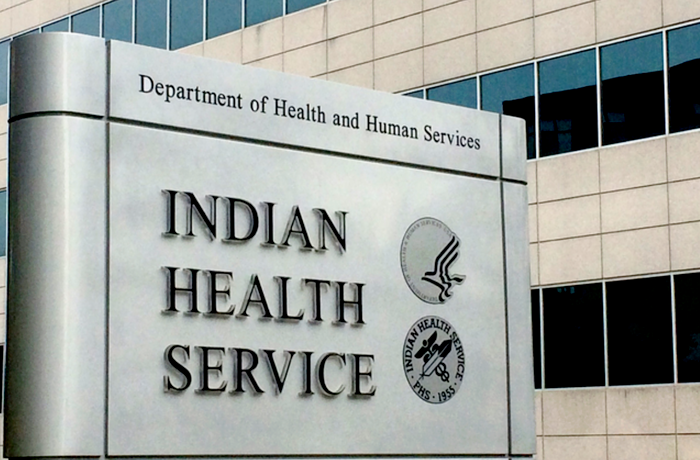
- Details
- By Jenna Kunze
Ten hours before the spending bill that funds the Indian Health Service was set to expire, potentially leaving more than 2.5 million Native Americans without health care access, Congress came through with a historic win for Indian Country.
On Thursday, Dec. 22, the Senate passed President Joe Biden’s $1.7 trillion Omnibus spending bill that will fund the government through most of 2023. Included in that bill is a significant policy change for Indian Country: $9.5 billion in advance appropriations available to the Indian Health Service (IHS) over the next two years. The House passed the bill around 2 p.m. EST on Dec. 23, sending it to be signed by President Biden before a government shutdown that would begin tonight at midnight.
Advance appropriations signify a major departure from how the federal government has historically funded IHS, which is the only major federal healthcare program subject to annual appropriations.
Those annual appropriations make tribes vulnerable to budget uncertainties and government shutdowns. In December 2018, when the federal government shut down for a record-breaking 35 days, IHS was unable to provide funding to tribal healthcare operations and, as a result, many tribal healthcare employees were furloughed, and tribal citizens were unable to get proper care.
“Predictable funding will allow us to disburse funds more quickly and enable IHS, tribal and urban Indian health programs to effectively and efficiently manage budgets, coordinate care and improve health outcomes for American Indians and Alaska Natives,” IHS Director Roselyn Tso said in a statement to Native News Online. “This predictability is especially important during a lapse in appropriations or a continuing resolution.”
 Make A Donation Here
Make A Donation Here
Advance appropriations are a budgetary solution that tribal leaders have advocated for for about a decade. They allow for new funding to become available one year or more after the year of the appropriations act in which it is contained.
Leaders at the National Indian Health Board, the National Council of Urban Indian Health, and The National Congress of American Indians celebrated the hard-fought win in a joint press release on Friday.
“Including advance appropriations for Indian health in the omnibus is a historic moment for Indian Country over a decade in the making,” National Indian Health Board (NIHB) President William Smith (Valdez Native Tribe), said in a statement. “While Indian health remains chronically underfunded, this provision will help ensure that the Indian Health Service can provide stable, uninterrupted care to our people even when there is a government shutdown. We are confident that we can build on this win and continue our work toward full and mandatory funding for the Indian Health Service, fulfilling the promises this country made to our people over two centuries ago.”
Former NIHB Director of Government Relations Aaron Payment (Sault Ste. Tribe of Chippewa Indians), called Congressional passage of advance appropriations for IHS funding “a monumental first step” in fulfillment of treaty obligations.
Want more Native News? Get the free daily newsletter today.
“The funding tribes receive is nominal compared to the valuation of the hundreds of million acres tribes ceded,” Payment told Native News Online. “Withholding our funding is an abrogation of the treaty and trust obligation.”
Additionally, Payment added, “the jagged pill is just for the first year.” In subsequent years, Congress will allocate funding as usual, because IHS will already have been ahead by one year.
“We believe that after the first year that there won't be any issues,” Payment said. “Then we'll move on to advance appropriations for the Interior, and BIE, and any tribal funding under EPA. All of our funding should be advance-appropriated, and it should also be mandated.”
The move also puts IHS on equal footing with other major federal healthcare programs such as The Veterans Health Administration, Medicare, and Medicaid. The Department of Veterans Affairs healthcare programs have been funded with advance appropriations since 2010. Medicare and Medicaid both receive mandatory funding.
U.S. Senator Jeff Merkley (D-OR), told Native News Online that government shutdowns in 2018 and 2019 were the force that gave Congress the momentum to finally move forward with advance appropriations for IHS.
Merkeley proposed advance appropriations for Indian Health Service in his fiscal year 2022 Senate Interior, Environment, and Related Agencies appropriations bill.
“It became clear when I took over the Interior Subcommittee, I wanted to say it's not acceptable for our responsibilities for the US government to provide health care services to the tribes,” Merkeley said. “It’s not acceptable for that funding to lapse. Quite frankly, we have a model for addressing this, which is the Department of Veterans Affairs. We had a good example of the tool to use, we just had to persuade everyone that we needed to use it.”
More Stories Like This
Artificial Intelligence Impacts the Art and Science of Dentistry – AI Part 2Feds Announce $50 Billion to States for Rural Health, Tribes Barely Mentioned in Awards
Community Safety Alert Issued Over Out-of-State “Treatment” Transfers
Language is Medicine: Navajo Researcher Tackles Speech Delays in Native Communities
Artificial Intelligence Impacts the Art and Science of Dentistry - Part 1

